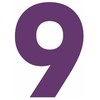First 625 - part 4 Flashcards
un/le cheval

horse
masculine noun
ʃə.val
to pull
verb
tirer


un/le poisson
(fish)
masculine noun
pwa.sɔ̃
six

6
card. number
sis
[six] – The pronunciation of the /X/ in “six” varies. It is typically silent when used before a noun that starts with a consonant. For example,
in “six jours,” “six” sounds like “see.” However, when it is used before a word that starts with a vowel, /X/ takes on a /Z/ sound instead, and
when it’s at the end of a phrase or at the end of a number that’s not followed by a noun, like “J’en ai quarante-six,” the /X/ is pronounced
like “eese.”

un/le supporter
(fan (sports))
masculine noun
[supporter] – Use “un supporter”/sy.pɔʁ.tɛʁ/ or “un supporteur” if you refer to sports.
un/le pied

foot
masculine noun

un/le café
coffee
masculine noun
ka.fe

un/le jus
(juice)
masculine noun

une/la horloge
(clock)
feminine noun
[horloge] – Another common translation is “un réveil” = “an alarm clock.”
une/la salle de bains

bathroom
feminine noun
sal də bɛ̃
[salle de bains] – “Une salle de bains” is where you’d go to take a bath or shower. If you want to go to the bathroom (i.e. the toilet),
you’d ask “Où sont les toilettes?” = “Where are the toilets?”
un/le petit déjeuner

breakfast
masculine noun

un/le cheval
(horse)
masculine noun
ʃə.val
plat

flat
adjective
pla
un/le animal

animal
masculine noun

lourd
(heavy)
adjective
luʁ
[lourd] – “Pesant” is a less common option.
un/le nez

nose
masculine noun
ne

un/le ordinateur
(computer)
masculine noun
une/la tasse

cup
feminine noun
tɑs

sentir
(to smell)
verb
sɑ̃.tiʁ
fan (sports)
un/le supporter

dix

10
card. Number
dis
sentir

to smell
verb
sɑ̃.tiʁ
computer
un/le ordinateur

une/la lumière

light (noun)
feminine noun
ly.mjɛʁ

six
6
card. number
[six] – The pronunciation of the /X/ in “six” varies. It is typically silent when used before a noun that starts with a consonant. For example,
in “six jours,” “six” sounds like “see.” However, when it is used before a word that starts with a vowel, /X/ takes on a /Z/ sound instead, and
when it’s at the end of a phrase or at the end of a number that’s not followed by a noun, like “J’en ai quarante-six,” the /X/ is pronounced
like “eese.”
eye
un/le oeil


je
( I )
pronoun
good
adjective
bon

ball
un/le ballon

bathroom
une/la salle de bains

program
(computer and tv)
un/le programme

10
dix


neuf
9
card. number
noef

quarante
40
card. number
ka. ʁɑ̃t
un/le café

coffee
masculine noun
ka.fe

un/le matin
(morning)
masculine noun
ma.tɛ̃
[matin] – Use “la matinée” to emphasize the duration. For example, “faire la grasse matinée” = “to sleep in.”

tu
( you (singular))
pronoun
[tu] – “Tu” is used to address a friend, a relative or a child; it is informal. To address someone formally, use “vous”
foot
un/le pied


une/la tasse
(cup)
feminine noun
tɑs
2
card. number
dø
deux


un/le petit déjeuner
(breakfast)
masculine noun
ugly
adjective
laid

flat
adjective
plat

quarante

40
card. number
ka. ʁɑ̃t

attraper
(to catch)
verb
a.tʁa.pe

cuisiner
(to cook)
verb
kɥi.zi.ne
[cuisiner] – There is a difference between “cuisiner” and “cuire.” “Cuisiner” means to prepare the food (i.e. following a recipe) while
“cuire” means to apply the heat (i.e. to grill). In a familiar sense and unrelated to food, “cuisiner quelqu’un” means to keep asking someone
questions in order to get informations (to pump). For example, “La policier cuisine le suspect” = “The police officer pumps the suspect. “
deux

2
card. number
dø
lourd

heavy
adjective
luʁ
[lourd] – “Pesant” is a less common option.

tirer
(to pull)
verb
ti.ʁe
un/le supporter

fan (sports)
masculine noun
[supporter] – Use “un supporter”/sy.pɔʁ.tɛʁ/ or “un supporteur” if you refer to sports.

deux
2
card. number
dø
sun
le soleil

to cook
verb
cuisiner


un/le programme
program
(computer and tv)
masculine noun

un/le nez
(nose)
masculine noun
ne
un / l’ oeuf

egg
masculine noun
oef
[OEuf] – The plural form of “oeuf”, “oeufs” has a radically different pronunciation: /ø/

un/le pied
( foot)
masculine noun
6
six

strong
adjective
fort

coffee
un/le café

garden/yard
un/le jardin

heavy
adjective
lourd

in front
adverb
devant


une/la lumière
(light (noun))
feminine noun
ly.mjɛʁ
un/le doigt

finger
masculine noun
dwa
tu

you (singular)
pronoun
[tu] – “Tu” is used to address a friend, a relative or a child; it is informal. To address someone formally, use “vous”

apprendre
(to learn)
verb
orange
une/l’orange

devant

in front
adverb
də.vɑ̃
kilogram
un/le kilogramme

la technologie

technology
feminine noun

un/le kilogramme
(kilogram)
masculine noun
ki.lo.ɡʁam
[kilogramme] – The common translation is “un kilo.” For example, “Je voudrais un kilo d’oranges s’il vous plaît” = “I’d like a kilo of
oranges, please.”

vingt-deux
22
card. number
vɛ̃t.dø
un/le joueur

player
masculine noun
[joueur] – The feminine form is “une joueuse”
une/la horloge

clock
feminine noun
[horloge] – Another common translation is “un réveil” = “an alarm clock.”

une/la salle de bains
(bathroom)
feminine noun
sal də bɛ̃
[salle de bains] – “Une salle de bains” is where you’d go to take a bath or shower. If you want to go to the bathroom (i.e. the toilet),
you’d ask “Où sont les toilettes?” = “Where are the toilets?”

un/le doigt
(finger)
masculine noun
dwa

bon
(good)
adjective
vingt-deux

22
card. number
vɛ̃t.dø
clock
une/la horloge

to learn
verb
apprendre

une/la équipe

team
feminine noun
e.kip
cuisiner

to cook
verb
kɥi.zi.ne
[cuisiner] – There is a difference between “cuisiner” and “cuire.” “Cuisiner” means to prepare the food (i.e. following a recipe) while
“cuire” means to apply the heat (i.e. to grill). In a familiar sense and unrelated to food, “cuisiner quelqu’un” means to keep asking someone
questions in order to get informations (to pump). For example, “La policier cuisine le suspect” = “The police officer pumps the suspect. “
une/la fenêtre

window
feminine noun
fə.nɛtʁ
un/le poisson

fish
masculine noun
pwa.sɔ̃
je

I
pronoun
october
masculine noun
octobre

to smell
verb
sentir

to catch
verb
attraper

un/le ordinateur

computer
masculine noun
une/l’orange

orange
feminine noun

un/le ballon
( ball)
masculine noun
[ballon] – French has several words for ball depending upon the size and usage. Use “un ballon” for soccer, “une balle” for tennis or golf,
and “une boule” for bowling and billiards.”

laid
(ugly)
adjective
lɛ
apprendre

to learn
verb
octobre

october
masculine noun

la technologie
(technology)
feminine noun
un/le kilogramme

kilogram
masculine noun
ki.lo.ɡʁam
[kilogramme] – The common translation is “un kilo.” For example, “Je voudrais un kilo d’oranges s’il vous plaît” = “I’d like a kilo of
oranges, please.”
you (singular)
pronoun
tu

un/le matin

morning
masculine noun
ma.tɛ̃
[matin] – Use “la matinée” to emphasize the duration. For example, “faire la grasse matinée” = “to sleep in.”
morning
un/le matin

9
card. number
neuf


fort
(strong)
adjective
fɔʁ
un/le programme

program
(computer and tv)
masculine noun
team
une/la équipe

nose
un/le nez

neuf

9
card. number
noef
finger
un/le doigt

22
vingt-deux


un/le joueur
(player)
masculine noun
[joueur] – The feminine form is “une joueuse”

un/le animal
masculine noun
une/la cuisine

kitchen
feminine noun
fort

strong
adjective
fɔʁ
le soleil

sun
masculine noun
so.lɛj
light (noun)
une/la lumière

attraper

to catch
verb
a.tʁa.pe

devant
(in front)
adverb
də.vɑ̃
bon

good
adjective
un/le jus

juice
masculine noun
breakfast
un/le petit déjeuner

Thursday
masculine noun
jeudi


un/le oeil
(eye)
masculine noun
oej
[OEil] – The plural form is ‘les yeux’ \jø\ (the eyes)

jeudi
(Thursday)
masculine noun
ʒø.di
box
une/la boîte

40
card. number
quarante

to see
verb
voir


une/l’orange
feminine noun

un /l’ oeuf
(egg)
masculine noun
oef
[OEuf] – The plural form of “oeuf”, “oeufs” has a radically different pronunciation: /ø/
voir

to see
verb
vwaʁ
cup
une/la tasse

tirer

to pull
verb
ti.ʁe

un/le jardin
(garden)
masculine noun
ʒaʁ.dɛ̃
to beat/hit
verb
battre

une/la boîte

box
feminine noun
bwat
[boîte] – Another common translation is “une caisse.” For example, “a toolbox” = “une caisse à outils.”
laid

ugly
adjective
lɛ

voir
(to see)
verb
vwaʁ
horse
un/le cheval


une/la fenêtre
(window)
feminine noun
fə.nɛtʁ

plat
(flat)
adjective
pla

octobre
(october)
masculine noun
egg
un / l’ oeuf


une/la boîte
(box)
feminine noun
bwat
[boîte] – Another common translation is “une caisse.” For example, “a toolbox” = “une caisse à outils.”
battre

to beat/hit
verb
batʁ

le soleil
sun
masculine noun
so.lɛj
window
une/la fenêtre


dix
10
card. Number
dis
fish
un/le poisson

animal
un /l’ animal

player
un/le joueur

kitchen
une/la cuisine

juice
un/le jus

jeudi

Thursday
masculine noun
ʒø.di
technology
la technologie


battre
(to beat/hit)
verb
batʁ
un/le jardin

garden/yard
masculine noun
ʒaʁ.dɛ̃
I
pronoun
je


une/la cuisine
(kitchen)
feminine noun
un/le ballon

ball
masculine noun
[ballon] – French has several words for ball depending upon the size and usage. Use “un ballon” for soccer, “une balle” for tennis or golf,
and “une boule” for bowling and billiards.”

une/la équipe
(team)
feminine noun
e.kip
un/le oeil

eye
masculine noun
oej
[OEil] – The plural form is ‘les yeux’ \jø\ (the eyes)


